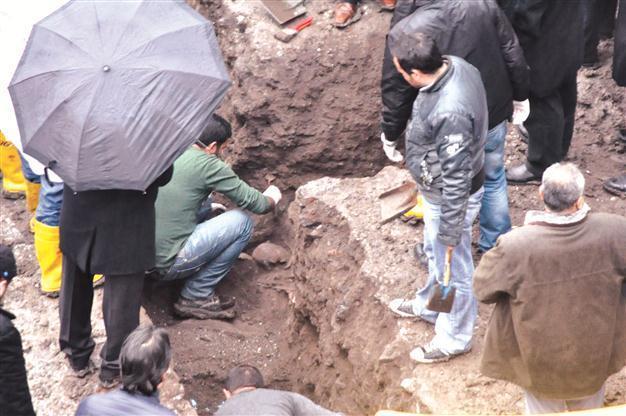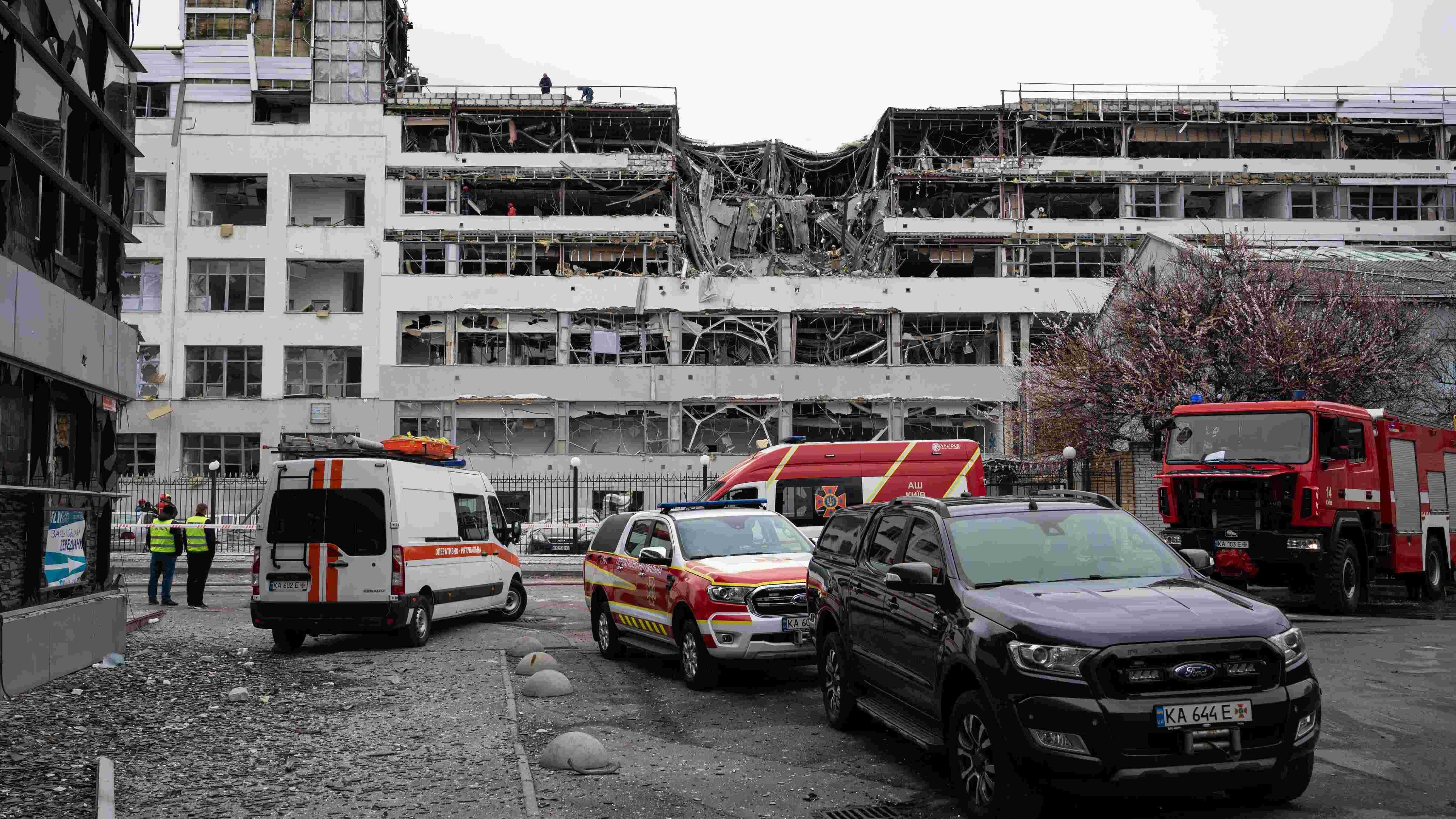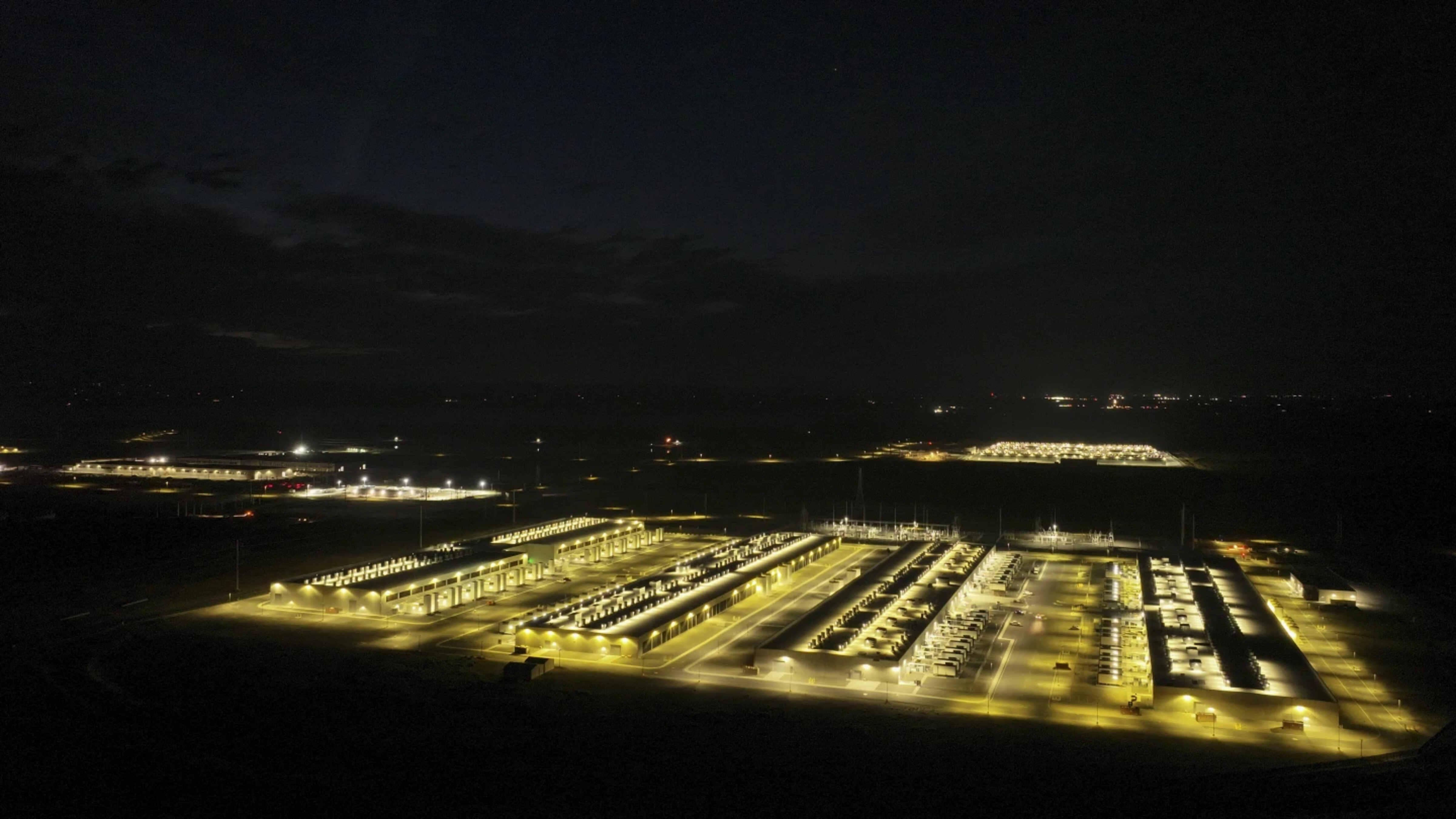Mass grave remains 100 years old: report
ISTANBUL - Hürriyet Daily News

Archaeologists first uncovered an assortment of eight skulls and bones Jan. 11 in southeastern province of Diyarbakır during conducting restoration work. DHA photo
Remains found last month in a suspected mass grave in Diyarbakır are actually 100 years old and do not appear to belong to murder victims, the Istanbul Forensic Medicine Institute has said, but human rights groups doubt the findings.“The examination on the bones shows that there is no sign that explains the cause of death for the deceased. No lesions due to firearms, explosions or sharp object injuries were detected. Morphological changes on the bones show that they were buried at least 100 years ago,” the institute said in a pressed statement released yesterday.
Many of the found teeth and bones found at the site in the southeastern province, which is close to a former gendarmerie building, also belong to animals, the institute said.
But Raci Bilici, a lawyer and the head of the Human Rights Association (İHD) Diyarbakır Branch, slammed the report, saying it was not prepared carefully and therefore did not specify the cause of death.
“For us the case is not over. The Istanbul Forensic Medicine Institute’s reports in the past have always been controversial. The result is obvious, there is a mass grave and there must be responsible people for that. The unreliable image of the institute is certainly known by everyone,” Bilici told the Hürriyet Daily News yesterday.
Bilici also said that if remains have been there for 100 years, then they might belong to Armenians who were allegedly massacred in 1915 by the Ottoman Empire.
“There are three types of mass graves in Turkey. They cover murdered Armenians in 1915, Kurdish rebels in the early 1920s and unsolved murders in the 1990s. We need an independent commission to investigate them all. If Turkey does not [do this], these mass graves will always be left in the dark,” Bilici said.
Archaeologists first uncovered an assortment of eight skulls and bones Jan. 11 while they were conducting restoration work. Some 36 families whose relatives have been missing filed a criminal complaint at the Diyarbakır Prosecutor’s Office to investigate whether the unearthed remains belonged to their lost relatives.
Meanwhile, the Diyarbakır Specially Authorized Chief Public Prosecutor’s office has ordered a widening of the scope of excavations in Mardin’s Dargeçit district, where 11 skulls have been found in a separate excavation.
















